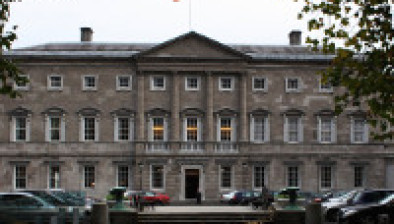High Court: Refusal of protection for applicants claiming political violence quashed due to being ‘marred by unreasonableness’

Killian Flood BL
The High Court has quashed a decision by the International Protection Appeals Tribunal (IPAT) which refused protection for two Albanian nationals claiming to be the victims of political violence.

About this case:
- Citation:[2021] IEHC 295
- Judgment:
- Court:High Court
- Judge:Mr Justice Max Barrett
The court held that the IPAT decision was flawed for several reasons, including that certain findings relating to the applicants’ credibility were “wholly unreasonable”.
The court also ruled that the IPAT had not applied the decision in I.R. v. Refugee Appeals Tribunal [2015] 4 I.R. 144 correctly, noting that the tribunal had refused the application based on a “gut sense” that more detail would have been desirable, despite no controverting evidence to the applicants’ claim.
Background
The applicants, given the pseudonyms Mr and Mrs Sula, were Albanian nationals who sought international protection in Ireland arising from threats made against them in Albania. Mr Sula was an active member of the Democratic Party and canvassed many individuals to vote for the party in the run up to national elections.
The Socialist Party were the main rivals to the Democratic Party and had deep connections with the Albanian mafia. Mr Sula claimed that, leading up to the election, he was cornered by thugs who threatened him for being a Democratic member. He claimed that he was held at gunpoint, beaten and told to leave the country. Mr Sula was shaken by the incident but did not leave the country immediately.
The Socialist Party won the election. In his application, Mr Sula claimed that the elections were won with threats and violence due to the Socialist Party’s ties with organised crime. A few days later, Mrs Sula was threatened and pushed off the bus because she was Mr Sula’s spouse.
The Sulas fled Albania and came to Ireland. Their claim for international protection was rejected by the International Protection Office and the IPAT on appeal. In the IPAT’s decision, it was said that the applicants’ case was not credible.
After reviewing the Country of Origin Information, the IPAT accepted that there was voter intimidation carried out by the Albanian mafia at the behest of the Socialist Party. However, the IPAT said that there was no evidence that the violence/intimidation had been carried out specifically against members of the Democratic Party. As such, it was held that Mr Sula’s claim of being abducted, threatened and beaten was not credible and the application was rejected. The Sulas brought judicial review proceedings against the decision.
High Court
In the High Court, Mr Justice Max Barrett determined that the IPAT decision was flawed for five principal reasons. The court began by outlining the decision in I.R. where it was determined that IPAT findings on credibility must be “untainted by conjecture or speculation” and could not be based on an instinct or gut feeling.
Turning to the present case, the court first noted that the IPAT had accepted that Albanian politics were fraught, being marred by organised crime and political violence. In light of this, it made no sense for the IPAT to conclude that there was no evidence in the COI about the type of political intimidation alleged by the Sulas. The court asked rhetorically: “who did the IPAT believe were the victims of voter intimidation done by the Socialist Party’s friends within the Albanian mafia?” It was “hopelessly illogical” that other opposition party members were targeted except the Democratic Party which was the main opposition party, the court said.
The court said that the implicit consequence of the IPAT’s decision was that Mr Sula would have had a stronger claim if he was not a Democratic Party member. Instead, if he were a generic opposition supporter, then he would have come under the more generalised COI provided to the IPAT. The court said this too was “illogical”.
Thirdly, the court held that the IPAT had rejected the applicants’ evidence on the gut instinct that more information was desirable. Given that the evidence provided was uncontroverted, the IPAT’s decision infringed the principles outlined in the I.R. case.
Fourth, the court held that there appeared to be a breach of section 28(4) of the International Protection Act 2015, which states that statements unsupported by documentary evidence do not need confirmation if those statements are coherent, plausible and do not run counter to available information. In this case, the court noted that the applicants’ accounts fulfilled this criterion and the IPAT should accordingly have accepted the credibility of their statements.
Finally, the court said that there were inadequate reasons provided to refuse the protection application. Mr Justice Barrett said: “If the IPAT was satisfied (and it clearly was satisfied) to conclude that a general reference to voter intimidation in the COI could be interpreted as excluding persons such as Mr Sula who were members of the main opposition party (itself an odd proposition) then it was incumbent upon the IPAT to explain why this was so.”
Citing A.A. v. Minister for Justice and Equality [2019] IECA 272, the court held that the IPAT was wrong to say that the COI was unreliable without corroborative evidence. In fact, the court noted that the IPAT never actually addressed why the COI was unreliable, but rather only said it would prefer to see alternative evidence. This was not a good reason for rejecting the evidence before it, particularly when the IPAT sought alternative evidence itself and could not find anything.
Conclusion
For the above reasons, the court quashed the decision of the IPAT and remitted the matter for fresh consideration.










